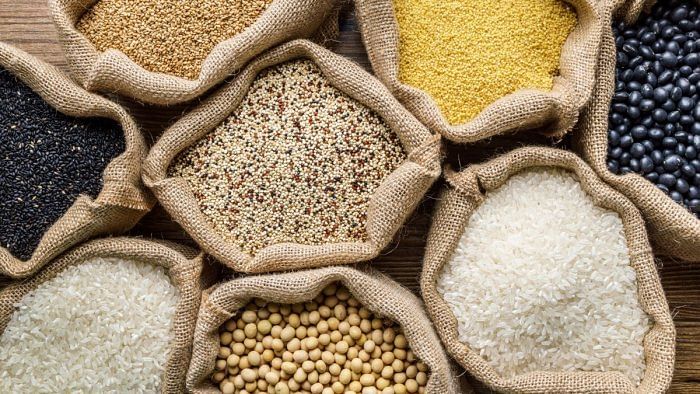
On January 1, 2023, the Union Government terminated the Pradhan Mantri Garib Kalyan Anna Yojana (PMGKAY). Accordingly, in the Union budget 2023-24, it has reduced allocation for food subsidy from Rs 287,000 crore during 2022-23 (RE) to Rs 197,000 crore.
Beginning in April 2020, PMGKAY provided 5 kg of rice or wheat per person per month for “free” via the Public Distribution System (PDS), as well as 1 kg of pulses per family per month to around 820 million families. Run for three months initially, the scheme got six extensions till December 31, 2022.
In the unprecedented situation triggered by the Covid-19 pandemic of large-scale job and income losses, PMGKAY was run to ensure that each of the affected had access to two meals a day. During FY 2020–21, when economic activity remained largely disrupted, resulting in “negative” growth in GDP by 6.6 per cent, the scheme was perfectly justified.
During FY 2021–22, the economy rebounded, with the GDP registering a growth of 8.9 per cent. During FY 2022–23, it is expected to register an impressive growth of 6.8 per cent–7 per cent. Naturally, this has led to the restoration of jobs and an increase in income, enabling people to sustain themselves on their own. There was no rationale to continue the scheme. Yet it continued courtesy of political populism.
In view of a spate of state assembly elections during the calendar year 2023, followed by general elections in 2024, the scheme was speculated to be continued. But the government has disbanded it. At the same time, however, it has decided to provide free rations to about 820 million poor people in the country under the National Food Security Act (NFSA) for one year, i.e., until December 31, 2023.
With the Covid pandemic behind us and the economy on track for sustained high growth, discontinuing PMGKAY is the way to go. However, tinkering with the regular NFSA to provide for free food was totally unwarranted.
Terming the decision as the merger of the free part of PMGKAY with the regular NFSA on December 23, 2022, Consumer Affairs, Food, and Public Distribution Minister Piyush Goyal opined this was done “to shield the masses from shocks to the system at a time the economy was recovering in the aftermath of the Covid crisis.” Nothing could be
more misleading.
When the economy is in recovery mode, where is the room for shocks? Even if one were to believe Goyal, who has withdrawn PMGKAY, what extra has the government given? This works out to Rs 2 per kg or Rs 10 per month for a beneficiary with a monthly wheat quota of 5 kg. This is too small an amount to enable her to neutralise the impact of a shock if any.
The fact of the matter is that the Covid shock no longer exists, and for that very reason, PMGKAY has been withdrawn. There was also no need to make food free under the regular NFSA. Yet, by doing so, Modi has played to the gallery (the “free” tag of PMGKAY helped him in elections during 2021/22, and he doesn’t want to lose it during 2023/24) in the process of increasing food subsidies by about Rs 13,000 crore.
This raises the question of whether free food (or heavily subsidised food) is truly a welfare measure aimed at empowering the poor. Or, is it like any other freebie—an acronym for political parties bribing voters using public money, solely to gain electoral advantage—such as free power, free rides, free laptops, and so on?
The regular NFSA has 820 million people under its ambit. This is nearly 2/3 of India’s population. It is not aimed at the poor alone. In fact, the Shanta Kumar Committee (2015) desired that the proportion of people eligible for food subsidies under the NFSA not exceed 40 per cent. The committee also desired that only those covered by the Antyodaya Anna Yojana (AAY), or the poorest of the poor, be eligible for the Rs 2/3/1 per kg payment.
Ideally, a welfare scheme should have a sunset date and end after the underlying purpose is achieved. However, the heavily subsidised food continues indefinitely.
No effort is made to drop the undeserving. Besides, the government doesn’t dare increase the price even by a small amount. This is despite the fact that since 2016, there is no legal bar on raising it; the current price (prior to January 1, 2023) of Rs 3/2/1 per kg was specified in the NFSA law (2013) that had frozen these rates for 3 years. With elections taking place around the clock and being a vote-catcher, meaningful reforms to this massive food subsidy programme are extremely unlikely.
(The writer is a policy analyst.)